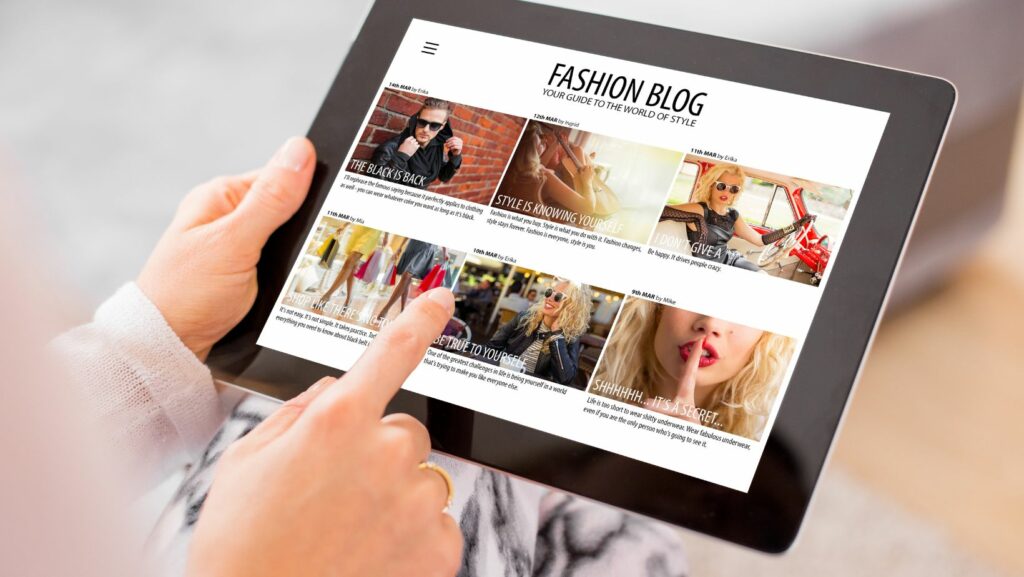In today’s digital era, lifestyle bloggers have carved out a unique niche in the vast expanse of the internet, transforming their personal passions and daily routines into captivating content for a global audience. These digital influencers offer a window into diverse lifestyles, covering a broad spectrum of topics from fashion and beauty to travel, food, and wellness. Their relatable stories and authentic experiences resonate deeply with followers, making them a trusted source for tips, trends, and inspiration.
Lifestyle Bloggers
 The ascent of lifestyle blogging marks a significant evolution in digital content. As individuals began documenting their interests, experiences, and daily lives online, a new genre of influencers emerged. These lifestyle bloggers tap into an array of topics, from fashion and beauty to travel, food, and wellness, connecting with audiences on a personal level. They excel in crafting stories and sharing experiences that not only entertain but also inform and inspire their readers. This personal touch transforms followers into a dedicated community, fostering a space where ideas, trends, and experiences are exchanged freely.
The ascent of lifestyle blogging marks a significant evolution in digital content. As individuals began documenting their interests, experiences, and daily lives online, a new genre of influencers emerged. These lifestyle bloggers tap into an array of topics, from fashion and beauty to travel, food, and wellness, connecting with audiences on a personal level. They excel in crafting stories and sharing experiences that not only entertain but also inform and inspire their readers. This personal touch transforms followers into a dedicated community, fostering a space where ideas, trends, and experiences are exchanged freely.
By creating content that mirrors their authentic selves, lifestyle bloggers have become pivotal in shaping digital trends and creating vibrant online communities. Their impact extends beyond their blogs, influencing trends across social media platforms and often collaborating with brands to introduce new products and services to their engaged audiences.
Key Characteristics of Successful Lifestyle Bloggers
Successful lifestyle bloggers excel by exhibiting distinct characteristics that set them apart in the digital sphere. Their ability to craft engaging personal narratives and provide valuable insights into various lifestyle sectors propels them into the spotlight. Key traits include:
- Authenticity: They share genuine experiences and honest opinions, establishing trust with their audience.
- Consistency: Regular updates and a steady flow of content keep followers engaged and attract new readers.
- Quality Content: High-quality, visually appealing posts and sharp, relatable writing define their work.
- Niche Expertise: Whether it’s in fashion, travel, or wellness, successful bloggers possess deep knowledge of their chosen field.
- Community Engagement: They don’t just publish content; they interact with their followers, creating a loyal community.
- Adaptability: With trends constantly evolving, these influencers stay ahead by adapting their content to meet changing tastes.
Popular Niches Within Lifestyle Blogging
 Lifestyle blogging encompasses a wide array of topics, allowing bloggers to cater to diverse interests and audiences. The evolution of lifestyle blogging has led to the emergence of specific niches, each appealing to different segments of readers. Notably, some of the most popular niches within lifestyle blogging include:
Lifestyle blogging encompasses a wide array of topics, allowing bloggers to cater to diverse interests and audiences. The evolution of lifestyle blogging has led to the emergence of specific niches, each appealing to different segments of readers. Notably, some of the most popular niches within lifestyle blogging include:
- Fashion: Bloggers provide insights into the latest trends, personal styling tips, and fashion-forward looks. They often demonstrate how to mix high-end and affordable pieces, influencing readers’ wardrobe choices.
- Beauty: This niche focuses on makeup tutorials, skincare routines, and product reviews. Beauty bloggers often share their secrets to achieving certain looks and the effectiveness of various beauty products.
- Travel: Travel bloggers explore new destinations, offer travel tips, hotel reviews, and cultural insights, helping readers to plan their next adventure more efficiently.
- Food: Food bloggers share recipes, dining experiences, and culinary tips. They provide valuable content for readers looking to expand their culinary skills or discover new eateries.
- Wellness: Covering topics like fitness advice, mental health, and holistic living, wellness bloggers aim to inspire healthier lifestyle choices among their audience.
Monetizing a Lifestyle Blog
 Monetization strategies turn a passion for blogging into a source of income, leveraging the blogger’s influence and audience engagement. Key methods include sponsored content, affiliate marketing, and selling digital or physical products.
Monetization strategies turn a passion for blogging into a source of income, leveraging the blogger’s influence and audience engagement. Key methods include sponsored content, affiliate marketing, and selling digital or physical products.
- Sponsored Content: This involves partnering with brands to promote products or services through posts, videos, and social media content. Successful bloggers often select partnerships that resonate with their audience’s interests, maintaining authenticity.
- Affiliate Marketing: Bloggers earn commissions by linking to products within their content and generating sales for the linked companies. It’s essential to disclose affiliate links to followers, aligning with transparency best practices.
- Selling Products: Many lifestyle bloggers expand their brand by offering digital products, such as e-books, courses, or photography presets, or physical merchandise. These products typically reflect the blogger’s niche and expertise.

